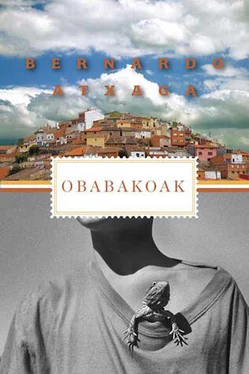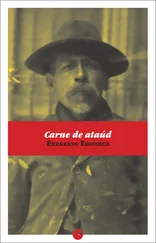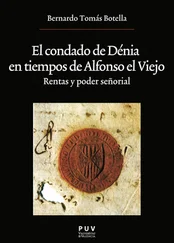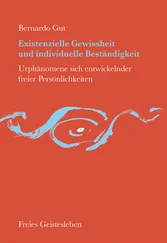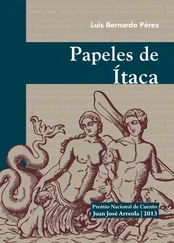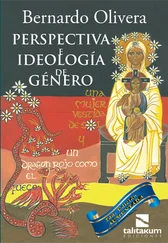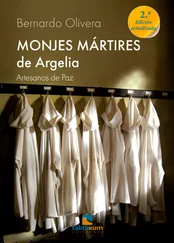Bernardo Atxaga - Obabakoak
Здесь есть возможность читать онлайн «Bernardo Atxaga - Obabakoak» весь текст электронной книги совершенно бесплатно (целиком полную версию без сокращений). В некоторых случаях можно слушать аудио, скачать через торрент в формате fb2 и присутствует краткое содержание. Год выпуска: 2010, Издательство: Graywolf Press, Жанр: Современная проза, на английском языке. Описание произведения, (предисловие) а так же отзывы посетителей доступны на портале библиотеки ЛибКат.
- Название:Obabakoak
- Автор:
- Издательство:Graywolf Press
- Жанр:
- Год:2010
- ISBN:нет данных
- Рейтинг книги:3 / 5. Голосов: 1
-
Избранное:Добавить в избранное
- Отзывы:
-
Ваша оценка:
- 60
- 1
- 2
- 3
- 4
- 5
Obabakoak: краткое содержание, описание и аннотация
Предлагаем к чтению аннотацию, описание, краткое содержание или предисловие (зависит от того, что написал сам автор книги «Obabakoak»). Если вы не нашли необходимую информацию о книге — напишите в комментариях, мы постараемся отыскать её.
Obabakoak
The Observer
Obabakoak — читать онлайн бесплатно полную книгу (весь текст) целиком
Ниже представлен текст книги, разбитый по страницам. Система сохранения места последней прочитанной страницы, позволяет с удобством читать онлайн бесплатно книгу «Obabakoak», без необходимости каждый раз заново искать на чём Вы остановились. Поставьте закладку, и сможете в любой момент перейти на страницу, на которой закончили чтение.
Интервал:
Закладка:
“I’ll go to the hospital library and consult the database. We’re certain to have something on tropical diseases. Call me back in a few days.”
But I didn’t need to call him back, he called me, the following morning.
“Well, it seems it is possible,” he said, without even a hello.
“Are you serious?”
It was a hot summer’s day, but the sweat dampening my palms at that moment had nothing to do with the temperature.
“Massieu, Pereire, Spurzheim, Bishop…”
I realized he was reading off the computer screen.
“Who are they? People who’ve written books on the subject?”
“Well, on tropical diseases in general. But the computer gives the chapter titles of the books and every one of them has something on the dangers posed by lizards. On lizards and mental pathology…”
He was reading from the screen again.
“I’ve spoken to my colleagues,” he went on, “and we’re all agreed. If what you believe were true, though it probably isn’t…”
“Of course not. That’s what I think. That it’s just a possibility, I mean,” I said.
“Right. But what I was going to say was, that if it were true, it would be the first case known in Europe. Interesting, eh?”
“Do you want to come to Obaba next Sunday?” I broke in. “It’s one of my uncle’s literary dos. You remember my uncle, don’t you, the one from Montevideo?”
“How could I forget? He demolished my story in about five seconds flat. Never mind that it was the first one I’d ever written,” he said, laughing.
“Look, I’ll tell you what we’ll do. On Saturday we’ll leave here in the evening and go to a village on the coast. No, I won’t tell you which village exactly. Just that we’re going to visit someone. Oh, all right, it’s Ismael. I see there’s no point trying to keep any secrets from you. Yes, he lives there now, he owns a bar next to the beach. And then afterward, we can drive back to Obaba. We could even have a swim.”
He remained silent a moment.
“Will your uncle put up with a plagiarist like me?”
“According to him everything that’s been written since the nineteenth century is just one long act of plagiarism. So if that’s all you’re worried about, don’t be.”
“Okay, I’ll come. I’d like to meet Albino María.”
He sounded uneasy. But his unease was that of the literary man, not of the doctor.
“Fine. Right. I’ll pick you up on Saturday at seven. If there’s any problem, call me.”
But there was no problem. At just after seven the following Saturday, our car joined the highway. The journey to Obaba had begun.
The village on the coast was less than an hour from our town and we took advantage of the remaining daylight to walk along the seafront and have supper out in the open air. Then, when it was eleven o’clock, we drove down to the beach and went to the bar run by my old classmate.
“Have you seen what the place is called?” my friend said, pointing up at the neon sign.
“The Lizard,” I read.
“It looks like Ismael hasn’t lost his old interests.”
“So it would seem.”
The bar was packed with adolescents and we had a hard time finding a suitable place from which to spy on him. Finally, thanks to the generosity of some motorcyclists, we occupied the bit of the bar they’d been using to put their helmets and gloves on. Then we sat down on the stools, our eyes fixed on Ismael.
He was as thin as ever, but he no longer looked like the wild boy of Obaba. He’d changed a lot. He was wearing an orange T-shirt emblazoned with some slogan in English and had blond highlights in his dark hair. When he saw us, he walked the length of the bar to greet us.
“What a surprise! What are you two doing here?”
It wasn’t only his appearance that had changed. He seemed relaxed and his smile was friendly. What would the photograph say to me the next time I looked at it? Probably nothing. It had told me often enough already that “to live” and “to change” were synonymous.
“As you see, even we manage to get out occasionally,” we replied, but were unable to continue the conversation because Ismael had to attend to a group of youngsters who were shouting for him.
Before he left, he offered us both a cigarette and — pointing to a seascape, one of the many he had hanging on the walls — made some comment about how polluted the sea had become.
“I never thought Ismael would turn out to be an ecologist,” I said.
“I bet he goes surfing too,” my friend whispered.
Half an hour later, with the bar still filling up with people, we broached the matter that had brought us there. We told him we were curious about the details of something that had happened when we were both at primary school, that there was no reason for him to be worried, our interest was, so to speak, purely scientific.
A mixture of fear and distrust surfaced in Ismael’s eyes. It was the look of the nine-year-old with a knife in his pocket. At least that hadn’t changed.
“Go on,” he said.
“You’re very keen on lizards, aren’t you?” I began. But not in any accusatory tone, I said it brightly, playfully.
“What makes you say that? Because of the name I gave the bar?”
His tone was unpleasant, almost threatening. But I knew he was a coward, I’d known it ever since primary school. He was a little devil then, but not up to fighting anyone face-to-face.
“No, I don’t mean that. I mean the lizard in the photograph, the one you were holding to Albino María’s ear. What I want to know is did the lizard crawl inside his head or not?”
“What are you talking about? You must be mad!” he shouted, then stalked off and began washing up some glasses.
“You’ve offended him,” my friend said.
But Ismael was back with us again.
“I’d have expected better from you. Do intellectuals like you still believe rubbish like that? Frankly, I’m disappointed.”
Ismael was still talking very loudly. His every gesture spoke his scorn. The motorcyclists down the bar from us were looking in our direction. It was beginning to look as if a fight was in the cards.
“Don’t get so upset, Ismael,” I replied, imitating the Obaba accent. I felt euphoric. The two gins inside me were beginning to take effect.
“I’m in my own place and I can do what I like! And I won’t have anyone coming in here making stupid accusations!”
I decided then to adopt Obaba behavior patterns. I took his hand in mine, a gesture that meant I was on his side and loved him like a brother. After all, we were from the same place, weren’t we? We’d appeared in the same photo. Surely that was enough. How could he not trust me?
“You know perfectly well I’ve got nothing against you personally!” I said.
“We’re just interested in this one small thing. I’m treating Albino María’s deafness and I just wanted to know exactly what happened that day, that’s all.”
I was amazed at my friend’s deftness. That was without doubt the best way of approaching the subject.
The reaction was quick in coming. The anger in Ismael’s eyes subsided.
“Why do you want to know?” he asked.
“Well, according to Albino María’s mother, that was the day he started to go deaf.”
I was astonished at how good my friend was at lying.
“Okay, I’ll tell you the truth. Not that I think it will be of much use to you,” said Ismael, drying his hands on a cloth. “I don’t actually know what happened to that lizard. It’s true I had it in my hand… to play some practical joke, I suppose, so that the photograph would turn out funny, with everyone in front moving about and shouting.… I imagine that’s what I wanted. But I don’t know what happened afterward. I do remember that it slipped out from between my fingers. But I don’t think it got into Albino María’s head. To be frank, that simply doesn’t seem possible.”
Читать дальшеИнтервал:
Закладка:
Похожие книги на «Obabakoak»
Представляем Вашему вниманию похожие книги на «Obabakoak» списком для выбора. Мы отобрали схожую по названию и смыслу литературу в надежде предоставить читателям больше вариантов отыскать новые, интересные, ещё непрочитанные произведения.
Обсуждение, отзывы о книге «Obabakoak» и просто собственные мнения читателей. Оставьте ваши комментарии, напишите, что Вы думаете о произведении, его смысле или главных героях. Укажите что конкретно понравилось, а что нет, и почему Вы так считаете.
